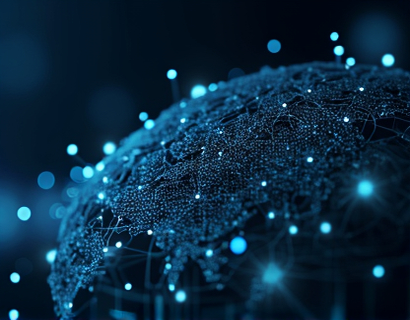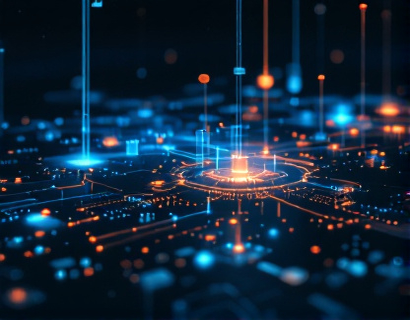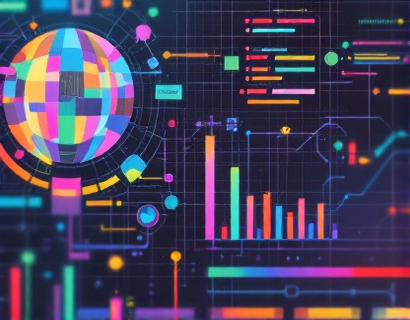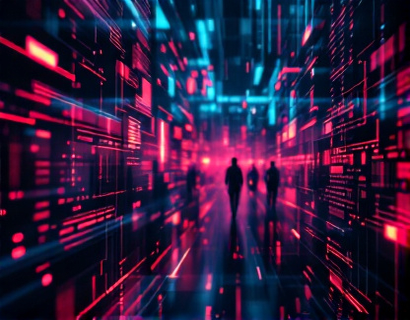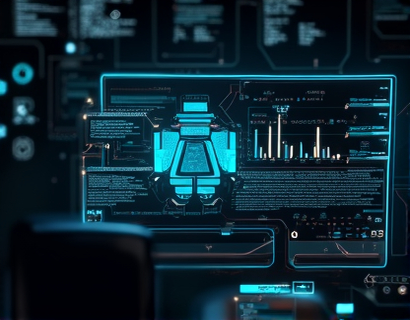AI and Crypto: Pioneering a New Era of Digital Productivity
The intersection of artificial intelligence and cryptocurrency is giving birth to a new paradigm in digital productivity. This fusion is not just a technological curiosity but a transformative force that is redefining how we work, interact, and manage our digital lives. For tech enthusiasts and early adopters, this convergence offers unprecedented opportunities to enhance efficiency, security, and innovation. This article explores the profound impact of AI and cryptocurrency on digital productivity, highlighting the latest advancements and their practical applications.
Understanding the Synergy
The synergy between AI and cryptocurrency is rooted in their shared foundation of decentralization and data-driven decision-making. AI, with its ability to process and analyze vast amounts of data, can optimize various aspects of cryptocurrency networks, from transaction processing to security measures. Conversely, cryptocurrency provides a secure and decentralized medium for AI applications to operate, ensuring transparency and reducing the risk of centralized failures.
This partnership is particularly significant in the realm of digital productivity. By leveraging AI, cryptocurrency platforms can automate complex tasks, predict market trends, and enhance user experiences. For instance, AI-driven bots can manage cryptocurrency portfolios, execute trades based on real-time data, and provide personalized investment advice. This not only saves time but also reduces the emotional bias often associated with trading decisions.
Enhancing Security Through AI
Security is a paramount concern in the world of cryptocurrency. Traditional security measures often fall short against sophisticated cyber threats. AI brings a new level of security by continuously monitoring networks for anomalies and potential threats. Machine learning algorithms can detect patterns indicative of fraudulent activities, such as unauthorized access attempts or malicious transactions, and respond in real-time.
Moreover, AI can enhance the security of smart contracts, which are self-executing contracts with the terms directly written into code. AI tools can analyze smart contract code for vulnerabilities, ensuring that they function as intended and minimizing the risk of exploits. This level of security is crucial for maintaining trust in cryptocurrency transactions and fostering a more robust digital economy.
Streamlining Workflows with AI
In the context of digital productivity, AI can streamline workflows in numerous ways. For instance, AI-powered project management tools can predict project timelines, allocate resources efficiently, and identify potential bottlenecks. These tools use historical data and machine learning algorithms to provide insights that human planners might overlook. This results in more accurate planning and better project outcomes.
Similarly, AI-driven collaboration platforms can enhance team productivity by automating routine tasks such as scheduling meetings, managing documents, and tracking progress. These platforms can also facilitate better communication by analyzing communication patterns and suggesting improvements. For remote teams, this can mean more cohesive collaboration and higher overall productivity.
Personalized User Experiences
One of the most exciting aspects of AI in digital productivity is its ability to create personalized user experiences. AI algorithms can analyze user behavior, preferences, and performance metrics to tailor applications and services to individual needs. In the context of cryptocurrency, this means that users can receive customized investment recommendations, alerts, and insights based on their unique profiles.
For example, an AI-powered wallet can monitor a user's transactions, market trends, and risk tolerance to suggest optimal times for buying or selling cryptocurrencies. This level of personalization not only enhances user satisfaction but also improves decision-making and potentially increases returns on investment.
Decentralized AI Markets
The combination of AI and cryptocurrency is also giving rise to decentralized AI markets. These platforms allow developers and users to buy, sell, and trade AI models and data sets in a decentralized manner. This democratizes access to advanced AI technologies, enabling a broader range of developers to innovate and create new applications.
Decentralized AI markets operate on blockchain, ensuring transparency and security. Smart contracts automate transactions, reducing the need for intermediaries and lowering costs. This ecosystem fosters a culture of collaboration and innovation, where the best AI solutions rise to the top based on merit rather than centralized control.
Challenges and Considerations
While the potential of AI and cryptocurrency in enhancing digital productivity is immense, there are several challenges and considerations to keep in mind. One of the primary concerns is the regulatory landscape. The intersection of these technologies often operates in a gray area, with varying regulations across different jurisdictions. Developers and users must stay informed about local laws and compliance requirements to avoid legal issues.
Another challenge is the technical complexity involved in integrating AI and cryptocurrency solutions. Not all organizations have the expertise or resources to implement these technologies effectively. This is where platforms like the one described earlier can play a crucial role by providing user-friendly tools and services that bridge the gap between complexity and accessibility.
Future Prospects
The future of AI and cryptocurrency in digital productivity is bright, with numerous emerging trends and innovations on the horizon. One such trend is the development of AI-driven decentralized finance (DeFi) applications. These applications leverage AI to optimize lending, borrowing, and yield farming, offering more efficient and transparent financial services.
Another promising area is the integration of AI with non-fungible tokens (NFTs) and other digital assets. AI can enhance the creation, management, and trading of NFTs, opening up new possibilities in digital art, collectibles, and virtual real estate. This fusion can lead to new forms of digital ownership and economic models that were previously unimaginable.
Furthermore, the rise of edge computing, combined with AI and cryptocurrency, can revolutionize how data is processed and stored. By decentralizing data processing and storage, these technologies can reduce latency, improve privacy, and enhance the overall performance of digital applications.
Conclusion
The fusion of AI and cryptocurrency is not just a technological novelty but a transformative force that is reshaping the landscape of digital productivity. For tech enthusiasts and early adopters, this convergence offers a wealth of opportunities to enhance efficiency, security, and innovation. As these technologies continue to evolve, the potential for new applications and use cases will only grow, paving the way for a more connected, secure, and productive digital future.



